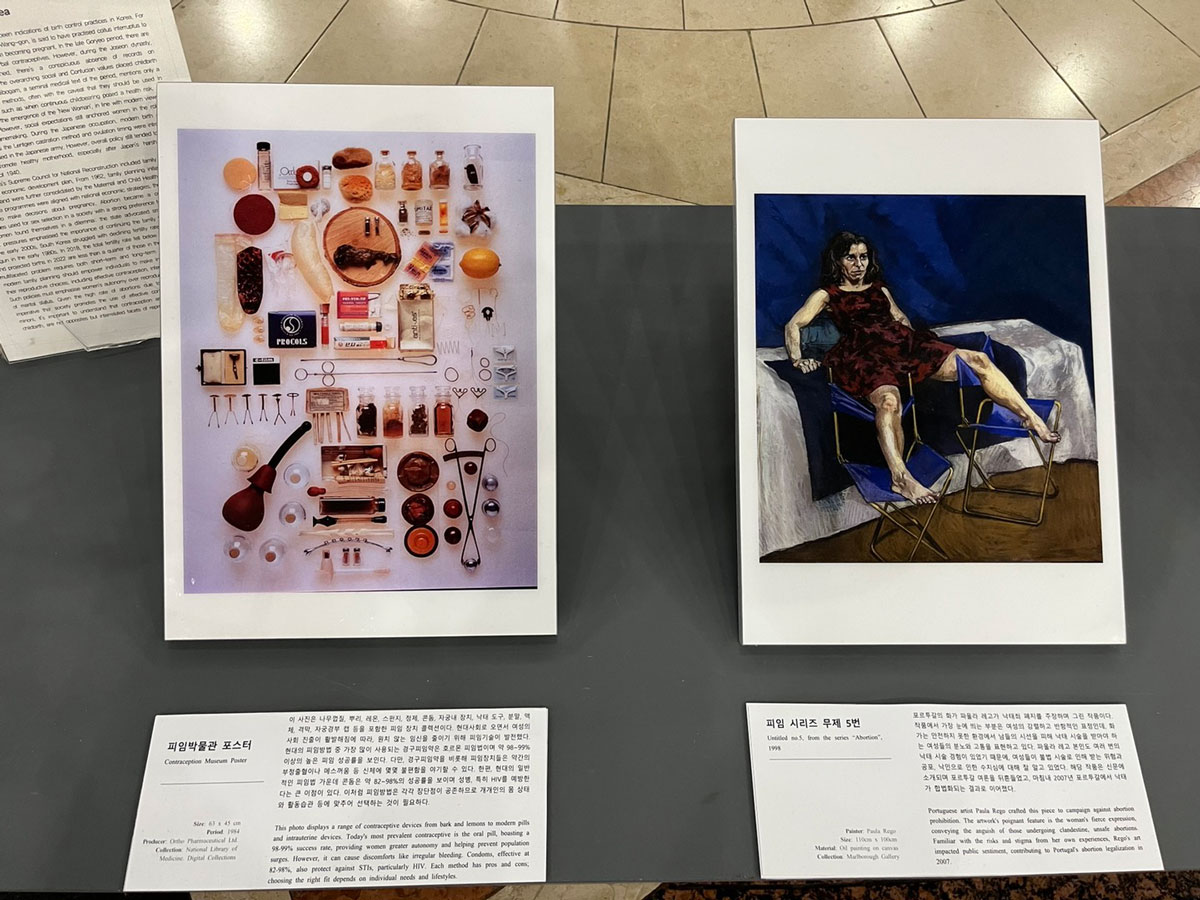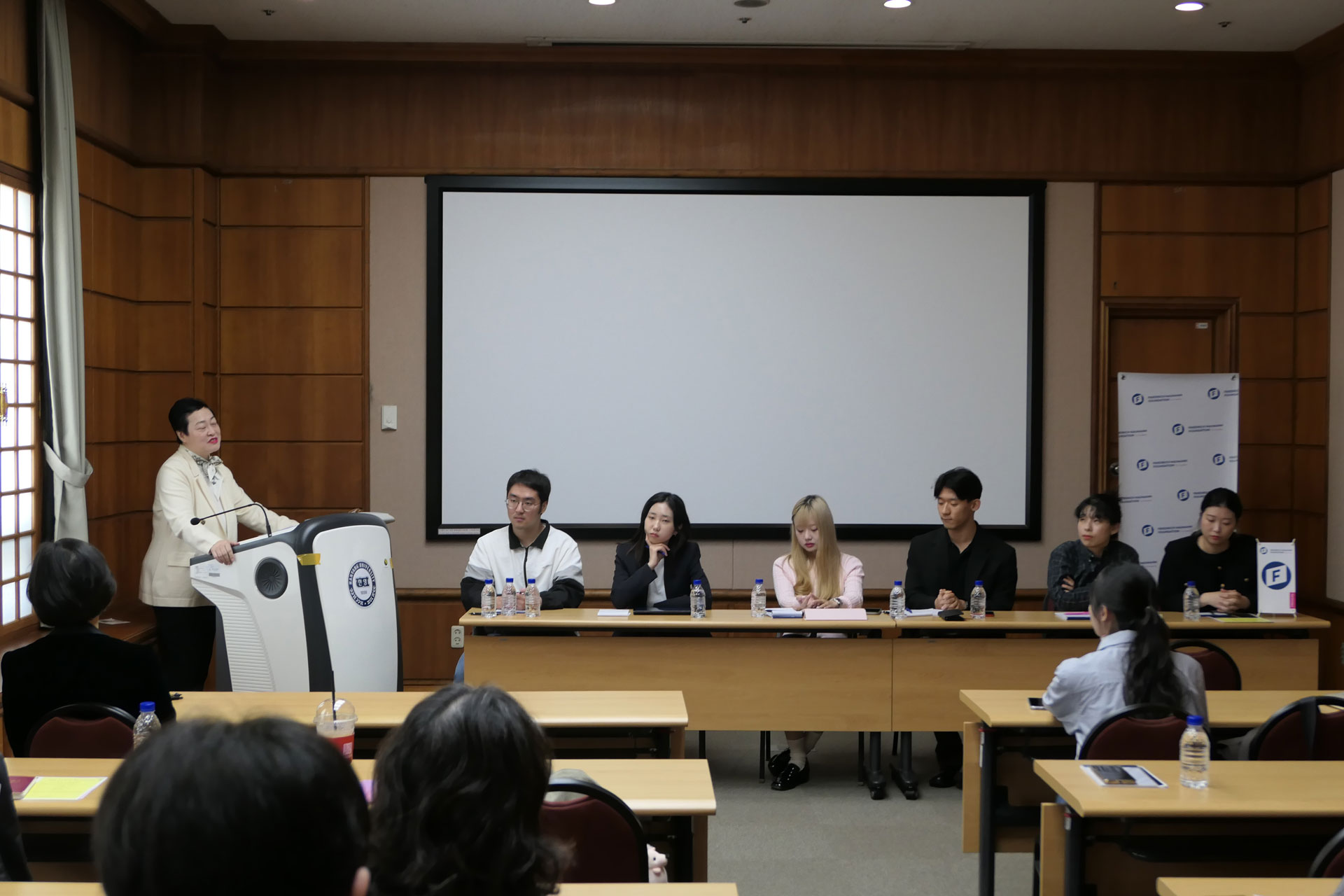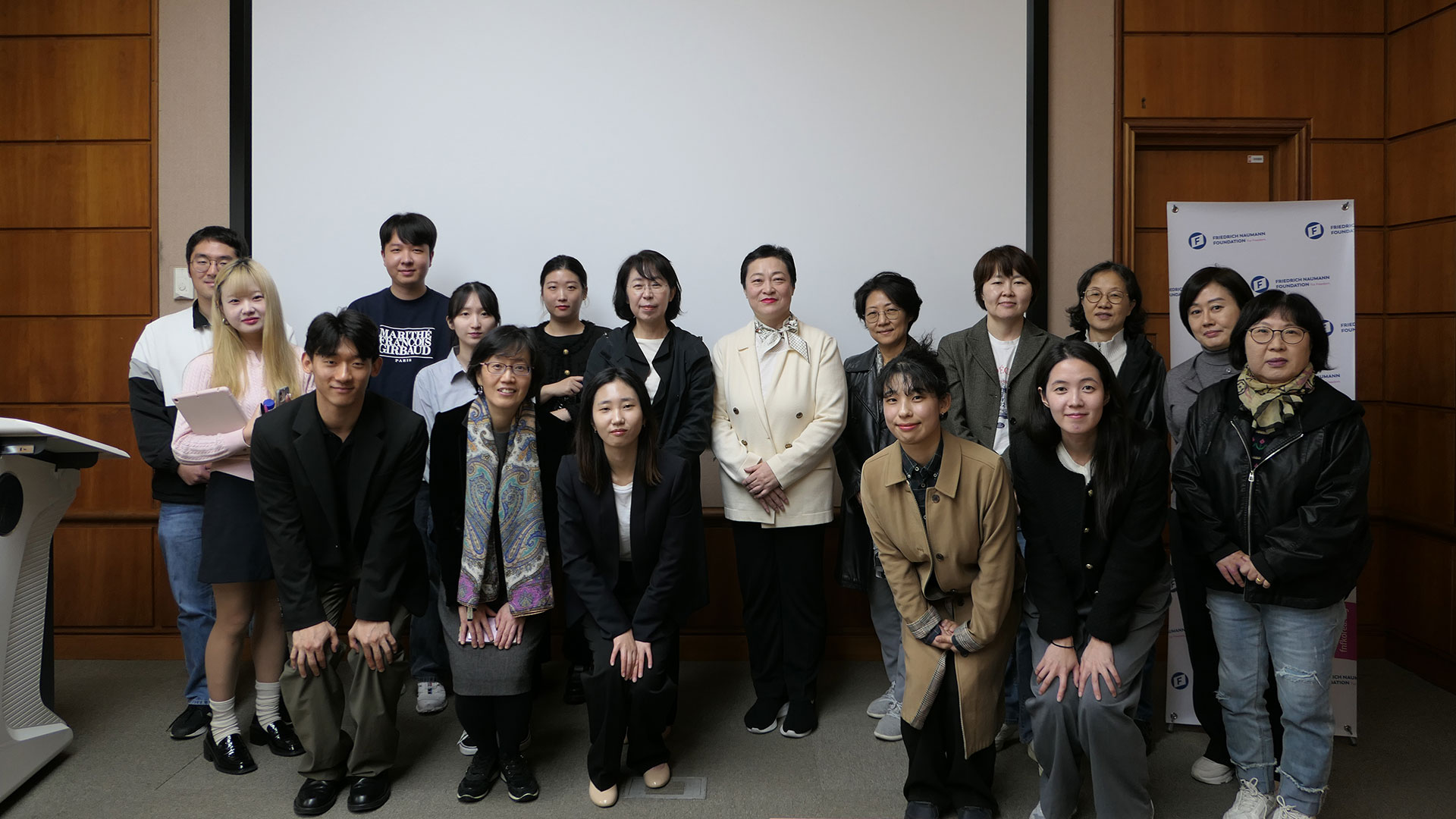Hidden Struggles of South Korean Women
South Korea
South Korea projects a hyper-modern and open image, driven by K-pop and digital advanced technology. However, beneath this progress lies a conservative, patriarchal society, where women’s sexual and reproductive rights remain constrained. Abortion has been technically legal since 2021, but access to safe medical services remains limited, with societal stigma and a lack of resources posing barriers. Public education on reproductive rights is scarce, and contraception is often a taboo subject. Unmarried women, in particular, face stigma when purchasing contraceptives or openly discussing their sexuality.
To highlight these issues, the Friedrich Naumann Foundation, in collaboration with Gender Museum Korea, supported an exhibition on the 3,000-year global history of contraceptives at Hanyang University, home to the FNF Korea office. In collaboration with the initiator of the exhibition, history professor Moon Soo-Hyun, FNF also organized a panel discussion on women’s rights in South Korea. This event opened up a conversation on gender issues, sexual rights and the social pressures faced by women in in South Korea.

The photo captures the silent resilience of South Korean women confronting societal and cultural barriers in their pursuit of equality.



One key topic was South Korea’s extremely low birth rate — the lowest in the world. As the population declines, women are often blamed by conservative groups and even by their families for not fulfilling traditional roles. Demographers predict that, at the current rate, South Korea’s population could be halved by the end of the century, increasing pressure on women to have children.
Students welcomed the exhibition and the discussion, which was covered by the local press. Lee Je-in, a 20-year-old history student, told HY News: "It was a meaningful time to talk freely about contraception and abortion. I hope students will have more opportunities to think about gender issues."
By supporting such initiatives, FNF hopes to contribute to a more open and equitable society where women can exercise their rights without fear of judgement or stigma.


Members of the Panel Discussion
Women’s rights
